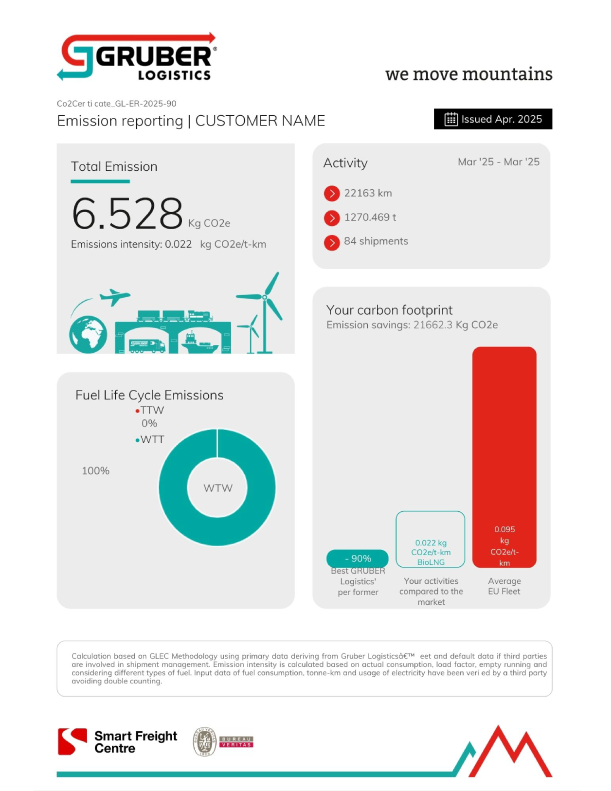A solution for reducing
emissions from road transport
Reducing emissions from freight transport is necessary and urgent, and finding solutions to do this effectively is a priority for the transport and logistics sector today. The technology is available and the solutions can be different depending on the needs.





